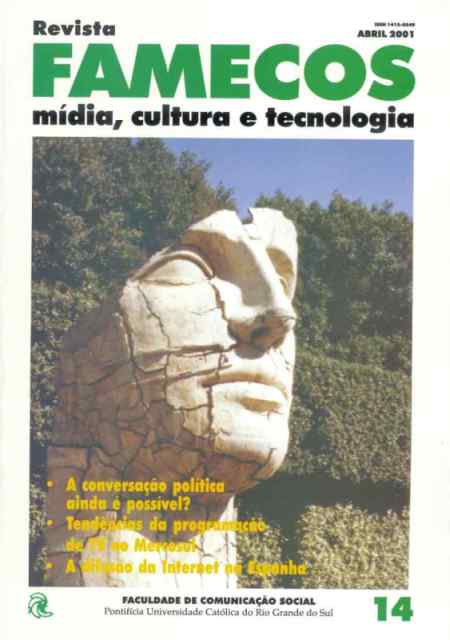Why is not conversation the soul of democracy?
DOI:
https://doi.org/10.15448/1980-3729.2001.14.3096Keywords:
Dialogue, Public Sphere, ArgumentationAbstract
Inspired by the writings of John Dewey, among others, communication studies have taken face-to-face conversation to be at the heart of democratic life. But face-to-face conversation has been much more honored in aristocracies than in democracies; and there are, in fact, two distinctive and contrasting ideals of conversation: the social conversation and the problem-solving conversation.
Downloads
References
CAREY, J. The press, public opinion, and discourse. In T. Glasser & C. Salmon. Public opinion and the communication of consent. New York: Guilford, p. 373-402, 1995.
DEWEY, J. The public and its problems. New York: Henry Holt, 1972.
GALSTON, W. Liberal purposes. Cambridge: Cambridge University, 1991.
GOFFMAN, E. Forms of talk. Philadelphia: University of Pennsylvania, 1981.
GRICE, P. Logic and conversation. In: P. Grice, Studies in the way of words. Cambridge: Harvard University, 1989.
HABERMAS, J. The public sphere. In: New German Critique, v. 1, p. 49-55, 1974.
HOLMES, S. Passions and constraint. Chicago: University of Chicago, 1995.
KATEB, G. The inner ocean. Ithaca, NY: Cornell University, 1992.
MANSBRIDGE, J. Beyond adversary democracy. New York: Basic Books, 1980.
OAKESHOTT, M. The voice of poetry in the conversation of mankind. In: M. Oakeshott, Rationalism in politics. New York: Basic Books, 1962.
PINTER, H. A slight ache. Three plays. New York: Grove, 1962.
REYNOLDS, J. Testing democracy. Chapel Hill: University of North Carolina, 1988.
SCHUDSON, M. Embarrassment and Erving Goffmanʼs idea of human nature. Theory and Society, v. 13, p. 633-648, 1984.
SHAPIN, S. A Social History of Truth. Chicago: University of Chicago, 1994.
SIMPSON, D. The academic postmodern and the role of literature. Chicago: University of Chicago, 1995.
______, D.The cult of çonversation. In: Raritan, v. 16, p. 75-85, 1997.
TARDE, G. On communication and social influence. Chicago: University of Chicago, 1969.
Downloads
Published
How to Cite
Issue
Section
License
Copyright
The submission of originals to Revista Famecos implies the transfer by the authors of the right for publication. Authors retain copyright and grant the journal right of first publication. If the authors wish to include the same data into another publication, they must cite Revista Famecos as the site of original publication.
Creative Commons License
Except where otherwise specified, material published in this journal is licensed under a Creative Commons Attribution 4.0 International license, which allows unrestricted use, distribution and reproduction in any medium, provided the original publication is correctly cited.






